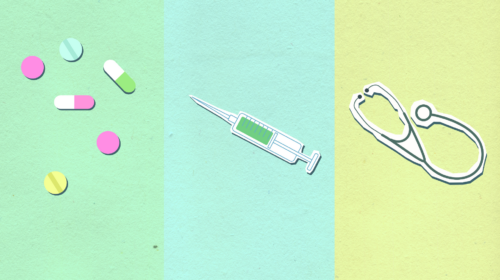In overcoming addiction, a familiar story has been told for ages. It’s like a message that keeps coming back, saying that a moment of realization only hits when a person reaches their lowest point, often referred to as “rock bottom.”
At rock bottom, you finally see the truth about your battle with drugs or alcohol, and the need for assistance becomes crystal clear. This idea suggests that it’s only through these intense and life-changing moments that people can find the courage to start a healing journey. They begin to see how much damage addiction has caused to their relationships and overall quality of life.
What Is Rock Bottom?
Socially, rock bottom signifies the point where life spirals into such uncontrollable chaos that seeking help becomes an automatic response. On a different note, experts dedicated to discovering treatments for recovery offer a deeper understanding of hitting rock bottom in the context of addiction.
According to a study published in the National Library of Medicine, the term “hitting bottom” describes a complex and personalized concept that can vary from what’s considered a “high bottom” to a “low bottom” and can involve different elements.[1] When does an alcoholic hit rock bottom?
Signs you have hit rock bottom could include:
- Near-fatal overdoses
- Incarceration
- Wrenching separations from your child
- Losing your job
- Losing your housing
- Feeling hopeless and depressed
- Feeling trapped
Different people have their versions of their “rock bottom” moments. This can create challenges when providing a consistent path for care and recovery for those seeking help. These challenges can accidentally hinder individuals as they navigate their journey to recovery.
What Are the Hindrances of Rock Bottom for Loved Ones?
A significant worry revolves around how the friends and family of those dealing with addiction might feel excluded from offering their support when it’s most needed. When the common belief is that rock bottom addiction has to reach complete devastation before anyone can step in, it can make loved ones feel powerless as they watch their friends or family members battle their issues. This can result in them hesitating to take even small steps to help or provide timely support.
If you suspect a loved one has hit rock bottom, there are several steps you can take to help. Here are a few options:
- Organizing a gentle intervention where they don’t feel threatened.
- Gathering information about available treatment choices before discussing them with your loved one.
- Approaching your loved one with openness, honesty, empathy, compassion, and understanding when the time is right.
- Seeking help from professionals or others who can provide guidance.
The Substance Abuse and Mental Health Services Administration (SAMHSA) believes it’s essential to support the family members and close friends of those struggling with alcohol addiction in their recovery journey, as it’s not just the person in treatment who needs to adapt but also those around them.[2] The powerful reach of addiction can create profound challenges, dragging families, friends, and loved ones into their version of a bottomless pit of despair. Along this journey, addiction leaves behind a trail of emotional pain hidden beneath layers of inaction and efforts to prevent the effects of alcohol dependence for everyone affected.
Central to this complex story is a straightforward truth: addiction gets worse over time. As people continue to use substances, their dependence strengthens, which can bring about more severe consequences for them and their loved ones.
What Is the Impact of Rock Bottom in the Medical and Scientific Community?
Another challenge connected to reaching “rock bottom” is how it portrays a real medical condition as mostly tied to behavior. The notion of rock bottom has been so exaggerated and glamorized that its true meaning is hidden.
But let’s look at a different situation. Imagine someone dealing with alcoholism, continuing to drink for many years while appearing functional on the surface. Eventually, they face liver failure, a severe result many years sooner than the typical lifespan for someone of their age group. Why does this happen?
Scientific Community
In a National Institute on Alcohol Abuse and Alcoholism (NIAAA) submission, a team of medical experts aiming to understand the negative effects of alcohol misuse challenge a key aspect of alcoholic rock bottom.[3] The DSM-IV diagnostic system, created by the American Psychiatric Association, acknowledges that negative effects from drinking are a clear sign of alcohol abuse.[4] This is separate from symptoms of alcohol dependence and pathological drinking.
This approach has been in place since around 1960, distinguishing between those who face life issues due to drinking and those who show alcohol dependence. It’s very clear that specific factors strongly challenge the idea of rock bottom being just a lifestyle event. The behavioral aspects linked with alcohol addiction form a distinct element. This “behavioral” belief is more connected to what happens after someone consumes alcohol rather than being the main trigger for substance misuse.
Medical Community
At the heart of community support and often the main doctors many people facing alcohol dependence encounter are the Emergency Room Physicians in hospitals. The widespread stigma tied to the concept of hitting rock bottom is deeply ingrained in society, and it naturally affects the quality of medical care provided to those dealing with alcohol addiction.
In a study submitted to the Annals of Emergency Medicine, Emergency Physicians “believe they can help young binge drinkers but not ‘chronic’ alcohol intoxication or addicted patients who are felt to have no ‘rock bottom’” because they have “no teachable moment.[5] This idea prevents the people who are best suited to provide medical help from taking action. Even more importantly, there’s an underlying message: there’s no universal “rock bottom.”
The Rock Bottom Theory Universalizes Substance Abuse
The puzzling part about the concept of hitting rock bottom is that it tends to treat addiction as if it’s the same for everyone, assuming that everyone dealing with substance abuse faces the same challenges. But, the World Health Organization (WHO) contradicts this idea and sheds light on the fact that not all addictions are alike. They internationally compared smoking and alcohol addiction, highlighting that, unlike tobacco, using alcohol often brings about positive experiences without apparent adverse health or social impacts.[6] This view of alcohol consumption changes based on factors such as:
- Culture
- Religion
- Certain medical research studies
This perception challenges the idea that alcohol is purely “negative,” as society often portrays most substances like cigarettes. This excerpt reveals that not all substance abuse recovery processes can be treated the same. Although there are certain universally recognized signs of alcohol addiction, embracing the belief that someone must hit a personal low before rebuilding their life doesn’t help. In fact, it can make the situation worse.
As we collectively aim to understand and help those dealing with the complexities of addiction, it’s vital to recognize the personal nature of each person’s struggle. The idea of rebuilding shouldn’t always stem from complete devastation; instead, it should encompass a range of experiences characterized by empathy, support, and a comprehensive understanding of each person’s unique path.
Rock Bottom Is Not the Beginning of Recovery
Each person has their version of hitting rock bottom, making the whole idea even trickier to grasp. No matter how you see this concept, the path to recovery doesn’t have to be a forced journey downward to rock bottom. This rock bottom theory might have started in the past when people with addiction didn’t have the treatment options available today. Or, it could be due to a lack of necessary support from family and society that should guide recovery.
But no matter where it comes from, the core idea of recovery is about reducing the harm caused by substance abuse. You don’t have to wait for everything to fall apart completely before starting to heal. Recovery Unplugged offers comprehensive treatment programs to address alcohol abuse and addiction. Contact us today to start your journey.
Sources:
- [1] Kirouac M, Witkiewitz K. National Library of Medicine. (2017 Oct 15) Identifying “Hitting Bottom” Among Individuals with Alcohol Problems: Development and Evaluation of the Noteworthy Aspects of Drinking Important to Recovery (NADIR). Retrieved from https://www.ncbi.nlm.nih.gov/pmc/articles/PMC6107067/ on 2023, August 22.
- [2] SAMHSA. (2014) What is Substance Abuse Treatment? A Booklet for Families. Retrieved from What is substance abuse treatment? (samhsa.gov) on 2023, August 23.
- [3] Miller, W. Tonigan, J. Longabaugh, R. National Institute on Alcohol Abuse and Alcoholism. (1995) The Drinker Inventory of Consequences (DrInc): An Instrument for Assessing Adverse Consequences of Alcohol Abuse. Retreived from https://www.niaaa.nih.gov/sites/default/files/match04.pdf on 2023, August 24.
- [4] Miller, W. Tonigan, J. Longabaugh, R. National Institute on Alcohol Abuse and Alcoholism. (1995) The Drinker Inventory of Consequences (DrInc): An Instrument for Assessing Adverse Consequences of Alcohol Abuse. Retreived from https://www.niaaa.nih.gov/sites/default/files/match04.pdf on 2023, August 24.
- [5] Rindal, K.E., Chin, N., Shah, M.N., & Sellers, C. Annals of Emergency Medicine (2012 October). 414 There Is No Rock Bottom: Emergency Physicians’ Approach and Adaptations to Alcohol Intoxicated Patients. Retrieved from https://www.annemergmed.com/article/S0196-0644(12)01125-0/fulltext on 2023, August 24.
- [6] Department of Mental Health and Substance Dependence Noncommunicable Diseases and Mental Health Cluster. World Health Organization. (2020) International Guide For Monitoring Alcohol Consumption And Related Harm. Retrieved from https://apps.who.int/iris/bitstream/handle/10665/66529/?sequence=1 on 2023, August 24.

























